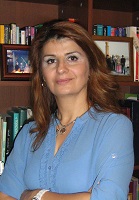Studying and teaching Turkic languages of the Siberian group in Ankara University
DOI:
https://doi.org/10.25178/nit.2018.1.11Keywords:
Turkic language; Turkey; problems of teaching; Siberian group of Turkic languages; Ankara University; historiographical review; TurkologyAbstract
The article provides a review of the major directions of studying and teaching Turkic languages of the Siberian group at Ankara University, since the 1930s, when the first entities were set up, later to be incorporated into the Universities which was established in 1946. Ankara University was the first educational and research institution in Turkey to start teaching modern Turkic languages as separate academic disciplines and researching them. Overall, the history of Turkic language programs in Ankara can be divided into two stages.
The first period began with the establishment of the university and lasted until the Department of Modern Turkish Languages and Literatures was launched in 1992. Research in Turkology began in 1936, and since 1940s the curriculum featured subjects in specific Turkic languages. The article focuses on the contributions made by professors Abdülkadir İnan (1889–1976), Saadet Çağatay (1907–1989) Hasan Eren (1919–2007). A special discussion of the foundation of a dedicated department by Professors Mustafa Canpolat and F. Sema Barutçu Özönder is also provided. This department came to be known as the Department of Modern Turkish Languages and Literatures.
The second period, having begun in 1992, lasts until now. In the first years of its history, the Department of Modern Turkish Languages and Literatures had only foreigners on its staff list, including Yu.I. Vasil’yev, Ch.M. Dorzhu, M.V. Oyun, M.B. Kungaa, T.N. Borgoyakova and A.T. Tybykova. The author discusses the most important contributions these academics made in research and teaching. Also mentioned are the dissertations defended at the epartment in the 1990s and 2000s, such as those by K.M. Simçit and G. Killi, as well as the monographs and articles by researchers currently on the Department’s stafflist and the academic programs provided by the department. A special focus is made on the “Modern Türklük Araştırmaları” journal published by the university since 2004. Since 2002, a symposium in modern Turkic studies has been held by the department, with participation of researchers from various Turkish institutions.
It is notable that the interest in Turkic languages, history, culture and belief systems of Turkic peoples of Siberia in Turkish academic circles is steadily growing.
References
Aта, A. (2007) Dar-ul-Funun’dan Dil ve Tarih-Coğragi Fakültesine kadar türkoloji öğretimi [Teaching Turkology from Dar-ul-Funun to the Faculty of Languages, History and Geography]. Türkiyat Mecmuası, no. 1, pp. 8–22. (In Turkish)
Çağatay, S. (1969) Tuba Ağzında iyik [«Iyik» in Tuba Language]. Türkiyat Mecmuası, no. 15, pp. 171–174. (In Turkish).
Eren, H. (1950) Sibirya Türk Lehçelerinde Moğolça Unsurlar [Mongolian Elements in the Languages of Siberian Turks]. Türk Dili Bulteni, issue 3, pp. 14–15. (In Turkish).
İnan, А. (1968) Makaleri ve tezler [Articles and Abstracts]. Ankara, Türk Dil Kurumu Yayınları. (In Turkish).
Özdemir, H. and Şenol, H. (2006) Dil ve Tarih-Coğragi Fakültesinde Türkoloji tarihi [History of Turkology at the Faculty of Languages, History and Geography]. Ankara, Ankara Üniversitesi. (In Turkish).
Sertkaya, O. F. (2012) Türkiye ve Moğolistan Araştırmaları [Turkey and Mongolian Studies]. Türkoloji Gazi, no. 11, pp. 1–10. (In Turkish).
Vasil’yev, Y. İ. (1993) Türkçe ve Sakaca (Yakutça) Konuşuyoruz. Tuuroktıı uonna saxalıı kapsetieğin [We Speak Turkish and Yakut]. Ankara, Ankara Üniversitesi. (In Turkish).
Vasil’yev, Y. İ. (1995) Türkçe-Sahaca Sözlük [A Turkish-Yakut Dictionary]. Ankara, Ankara Üniversitesi. (In Turkish).
Vasil’yev, Y. İ., Kirişçioğlu F. and Killi, G. (1996) Sözlü Edebiyat Örnekleri [Samples of Folk Literature]. Ankara, Ankara Üniversitesi. (In Turkish).
Zülfikar, H. (2008). Hasan Eren anısına [In Memoriam Hasan Erena]. Dil Araştırmaları, no. 2, pp. 162–166. (In Turkish).
Published
How to Cite
Issue
Section

Author(s) license holder(s) grant rights for their work to the journal (grantee of a license) under the simple non-exclusive open license in accordance with Art. 1286.1 «Open license for a research work, work of literature or fine arts», Civil Code of the Russian Federation.
New Research of Tuva publishes articles under the Creative Commons Attribution-NonCommercial license (CC BY-NC).
Since it is an open license, author(s) reserve the right to upload the article to their institutional repository, submit it to another journal (if it allows republications), or republish it on their own website (in full, or in part).
However, several conditions apply here:
a) The republished version must always contain the name(s) and affiliation(s) of the author(s), the original title and the hyperlink to the original version on the New Research of Tuva website;
b) It must be in open access, free of charge, and no category of readers must be in any way whatsoever advantaged over general readership.
c) should the contribution be submitted elsewhere by its author(s) without substantial modification (30% or more of original text unchanged), the body of the article should contain a disclaimer that the original version was published in New Research of Tuva (with a link to the respective page)
The CC-BY-NC is a non-revocable license which applies worldwide and lasts for the duration of the work’s copyright.









